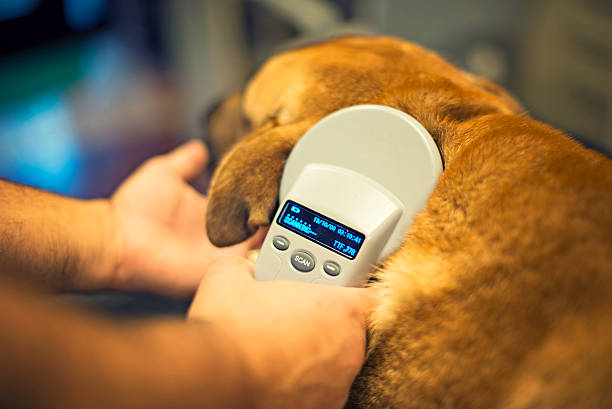Many dog owners know that their dogs can become exceptionally lively before bedtime, but the explanation for this conduct continues to elude them.
Most dogs are naturally inclined to be active at night; however, some dogs may become overexcited and restless when there is a lack of stimulation during the day. This can lead to destructive behaviours such as chewing or scratching furniture or jumping on people or other animals.
Some dogs also experience anxiety when left alone in the house at night, leading them to seek out human interaction to calm down.
Causes Why Dogs Get Hyper at Night
In the evening, many dogs become hyper and restless. This can be a difficult time for both dog owners and their pets. There are several reasons why dogs may get hyper at night. Here are the most common reasons why:
Excess Energy
One reason is that they may have too much excess energy left from the day. Dogs expend a lot of energy playing, running around, and exploring. Dogs tend to become restless and hyperactive when confined to a small space like a house or apartment at night.
Lack of Exercise
Another reason dogs may get hyper at night is because they are not getting enough exercise during the day. If a dog isn’t given enough chances to run and play during the day, it will likely be more active at night.
This can be frustrating for owners who want to relax in the evening but are constantly disturbed by their restless pet.
Excitement
Dogs are known for getting excited and hyperactive at night. While the reason for this is not fully understood, there are a few theories about why this happens. One theory is that hyper dog gets excited in the evening because they know it is time for playtime or dinner.
Another theory is that dogs become more active at night because there is less external stimulation during that time, so they become more stimulated internally. Whatever the reason, most dog owners can attest to their dog’s increased energy level at nightfall.
Separation Anxiety
Dogs can get hyper before bedtime because of anxiety. Due to their separation anxiety, an anxious dog may pace, bark, or chew on objects. This can lead to a restless night for the dog and the owner. There are some things that owners can do to help their dogs calm down before bedtime. One is to create a routine for the dog and stick to it as much as possible.
This will help the dog know what is coming and make them feel more secure. Owners can also provide their dogs with toys or treats specifically meant to calm them down. Owners can help their dogs get a good night’s sleep by doing these things.
Dogs may become hyper before bed if they are anxious about something, such as a storm or fireworks.
Physical Activity
A dog with a lot of physical activity will often be more hyper before bed. Dogs that have played a lot before bedtime will often be more hyper around when they usually go to bed. Dogs running around for a long time before bedtime will likely wake up with energy and may not want to sleep.
Age
Puppies and young dogs are more likely to be hyper before bed than senior dogs. Puppies and young dogs are more likely to have anxiety issues, so they may be hyper before bed. Older dogs are less likely to have separation anxiety issues, so there is less reason for them to be hyper before bed.
Dog’s Diet
Dogs get hyper before bedtime because of diet. Dogs fed dog food high in protein and fat are more likely to act restless and hyper before bedtime. This is because these diets raise adrenaline levels in the bloodstream, making dogs more energetic than usual.
While there isn’t anything wrong with a high-protein diet per se, it’s important to be aware that it could lead to restless behaviour in your dog right before bed. If your dog is having trouble settling down at night, you may want to consider switching them to a lower-fat diet.
Environment
Dogs have seemingly endless energy, and many believe dogs get hyper before bedtime because of their environment. Dogs cooped up all day in small apartments or houses tend to be the most hyperactive at night.
This is because they are pent up and have a lot of energy to release. Playing with your dog before bed can help tire them out, making them more likely to sleep through the night.
Dogs kept in dark, quiet rooms when they should be sleeping may be more hyper before bed.
Genetics
Dogs are known to get hyper at night, and there is a scientific reason behind it. A recent study has shown that genetics may play a role in why some dogs become more active at night. Researchers studied a group of dogs prone to getting hyper before bedtime and found that they had a specific gene associated with higher activity levels.
The researchers say that this finding could help to explain why there are active breeds. It could also lead to new ways to treat hyperactivity in dogs, including using drugs or behavioural therapy.
Solutions


There are ways to help your dog calm down before bed. Some would require time and patience, but it will be worth it for your peace of mind.
Give Your Dog Enough Exercise
Most people know that exercise is good for them, both physically and mentally. Many people don’t realize that the same holds for their pets. Exercising your dog before bed can help give them a good night’s rest and help them become more alert. It also has other benefits, such as reducing anxiety and improving joint health. Here are a few tips on how to get your dog moving before bedtime.
The first step is to figure out how much exercise your dog needs. This will vary depending on their age, breed, and activity level. A good rule of thumb is to aim for at least 30 minutes of exercise per day. If your dog isn’t used to working out, start slowly and work your way up to 30 minutes over time.
There are many ways to get your dog moving before bed. One option is to take them for a walk or run.
Establish a Bedtime Routine and Stick to It
Dogs are creatures of habit and like to have a routine. One way to help your dog sleep through the night is to establish and stick to a bedtime routine. This could include taking your dog for a walk, feeding them their last meal, and giving them time to relax before bed. If you can, keep the same routine every night so your dog knows what to expect.
Provide a Comfortable Sleeping Environment for Your Dog
The average dog sleeps 12-14 hours per day, but not all dogs can rest comfortably. Dogs that sleep on the hard floor can develop health problems like joint pain and arthritis. A comfortable place for your tired dog to sleep is important for their health and well-being.
You can provide a comfortable place for your dog to sleep in several ways. One option is to purchase a pet bed. Many different types of pet beds are available, so you can find one that best suits your dog’s needs.
If your dog likes to curl up in a ball when they sleep, you may consider purchasing a round bed or nest. You can buy a larger bed if your dog prefers to stretch out.
Another option is to create a makeshift bed for your dog using items you have around the house.
Limit Noise and Distractions in the Bedroom in Preparation for Your Dog’s Bedtime
There’s a lot of debate about the best way to get a good night’s sleep. Some people say you need eight hours in a dark, quiet room. But for many people, that’s not possible. If you have a dog, there are some ways to limit noise and distractions in the bedroom so your pup can get his own good night’s sleep.
First, create an environment conducive to sleep for you and your dog. Make sure the bedroom is cool and dark with little noise and distractions. This may mean shutting off televisions and computers or putting them in another room. If your dog is used to sleeping in your bed, start by training your dog to sleep in its own bed on the floor. This may take some time, but it will be worth it for both of you.


Use Positive Reinforcement Dog Training
Dogs are often anxious before bedtime, which can lead to disruptive behaviour. Luckily, you can do a few things to help your dog relax and prepare for bed. One of the best ways to do this is using positive reinforcement and mental stimulation.
This involves rewarding your dog for calm, relaxed behaviour in the hours leading up to bedtime. You can do this by providing them with treats, petting them, or letting them sleep in your bedroom. Establishing a bedtime routine and using positive reinforcement can help your dog relax and get a good night’s sleep.
Consult with Your Veterinarian If You’re Concerned About Your Dog’s Behaviour before Bed
Dogs are like people in that they have different personalities and can have different bedtime behaviours. Some dogs love to jump into bed and snuggle up next to their human companions, while others prefer to sleep on their own in a designated home spot. If you’re concerned about your dog’s behaviour before bed, it’s best to consult with your veterinarian.


There are several reasons why dogs might exhibit weird behaviours before bed. They could be anxious or stressed about something or experiencing pain or discomfort that’s keeping them from getting a good night’s sleep. Several medical conditions can cause restless behaviour at night, such as canine cognitive dysfunction syndrome (CDS) and sleep apnea.
By understanding why dogs get hyper at night, you can help them relax and get a good night’s sleep.
There are a few reasons why dogs get hyper before bed. One reason may be that they are excited about going to bed and spending time with their owners. Another reason may be that they are releasing pent-up energy from the day. Dogs may also get hyper before bed because of anxiety or stress. Owners can help their dogs by providing plenty of exercise and playtime during the day and creating a calm and relaxing environment before bed.



